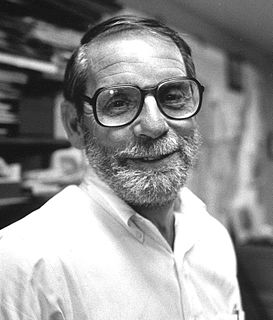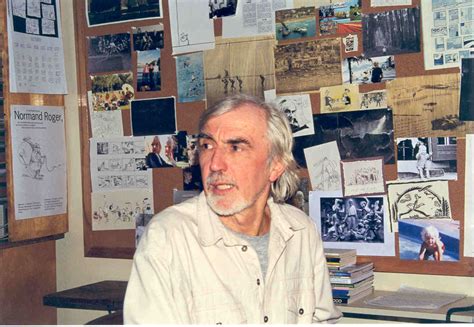Top 860 Rapidly Quotes & Sayings - Page 15
Explore popular Rapidly quotes.
Last updated on April 15, 2025.
In the world's history certain inventions and discoveries occurred, of peculiar value, on account of their great efficiency in facilitating all other inventions and discoveries. Of these were the art of writing and of printing - the discovery of America, and the introduction of Patent-laws. The date of the first ... is unknown; but it certainly was as much as fifteen hundred years before the Christian era; the second-printing-came in 1436, or nearly three thousand years after the first. The others followed more rapidly - the discovery of America in 1492, and the first patent laws in 1624.
The whole Ireland was taken over by greed and materialism. It was extraordinary. The price of every house had skyrocketed. If you were a small farmer and you had two fields outside, if you built 17 bungalows on them all, you become a millionaire, that kind of thing. It was extraordinary to see how rapidly that kind of ethic takes over a whole culture, but that's what's happened to us since the year 1998, about. It's completely extraordinary how little regard the culture had for the landscape. The country is now full of these half-built industrial parks and hotels.
Experts kill me. Economic experts, that is. Corporations, foundations, publications and governments pay them by the bucketful, and they fill buckets with forecasts that change more frequently than white-collar, workers do shirts. What Lies Ahead is the usual title. What Lies would often be more appropriate. If women's hemlines changed as rapidly as an economist's forecasts, the fashion people and the textile industry would be more profitable than any other. In fact, if all the country's economists were laid end to end, they still wouldn't reach a conclusion.
Deep attention, the cognitive style traditionally associated with the humanities, is characterized by concentrating on a single object for long periods (say, a novel by Dickens), ignoring outside stimuli while so engaged, preferring a single information stream, and having a high tolerance for long focus times. Hyper attention is characterized by switching focus rapidly among different tasks, preferring multiple information streams, seeking a high level of stimulation, and having a low tolerance for boredom.
Consider the oddity of those drug commercials on television. Fifteen seconds of the purported therapeutic effort, followed by about 45 seconds of a rapidly muttered list of horrific possible side effects. When the ad is over, I can't remember a thing about what the pill is supposed to do, except perhaps cause nausea, liver damage, projectile vomiting, a nasty rash, a four-hour erection, and sudden death. Sudden death is my favorite because there is something comical about it being a side effect. What exactly is the main effect in that case? Relief from abdominal bloating?
And there was that letter from the Bramleys—that really made me feel good. You don’t find people like the Bramleys now; radio, television and the motorcar have carried the outside world into the most isolated places so that the simple people you used to meet on the lonely farms are rapidly becoming like people anywhere else. There are still a few left, of course—old folk who cling to the ways of their fathers and when I come across any of them I like to make some excuse to sit down and talk with them and listen to the old Yorkshire words and expressions which have almost disappeared.
At the beginning of World War II the U.S. had a mere 600 or so first-class fighting aircraft. We rapidly overcame this short supply by turning out more than 90,000 planes a year. The question at the start of World War II was: Do we have enough funds to produce the required implements of war? The answer was No, we did not have enough money, nor did we have enough gold; but we did have more than enough resources. It was the available resources that enabled the US to achieve the high production and efficiency required to win the war. Unfortunately this is only considered in times of war.
We're still putting 110 million tons of man-made global pollution into the air every single day as if the sky is an open sewer. More than 90% of the extra heat energy is going into the oceans, and that's why superstorm Sandy was so much more destructive, that's why the ice is melting more rapidly, that's why the water cycle is being disrupted and we get a lot more water vapor coming from the oceans into the sky, and that's why we get these enormous downpours and big floods. They happen all the time. Every night on the TV news is like a nature hike through the Book of Revelation.
India does not need to become anything else. India must become only India. This is a country that once upon a time was called 'the golden bird'. We have fallen from where we were before. But now we have the chance to rise again. If you see the details of the last five or ten centuries, you will see that India and China have grown at similar paces. Their contributions to global GDP have risen in parallel, and fallen in parallel. Today's era once again belongs to Asia. India and China are both growing rapidly, together. That is why India needs to remain India.
A quarter-horse jockey learns to think of a twenty-second race as if it were occurring across twenty minutes--in distinct parts, spaced in his consciousness. Each nuance of the ride comes to him as he builds his race. If you can do the opposite with deep time, living in it and thinking in it until the large numbers settle into place, you can sense how swiftly the initial earth packed itself together, how swiftly continents have assembled and come apart, how far and rapidly continents travel, how quickly mountains rise and how quickly they disintegrate and disappear.
It's a long shot, it's suicide maybe, but I do the only thing I can think of. I lean in and kiss Peeta full on the mouth. His whole body starts shuddering, but I keep my lips pressed to his until I have to come up for air. My hands slide up his wrists to clasp his. "Don't let him take you from me." Peeta's panting hard as he fights the nightmares raging his head. "No. I don't want to. . ." I clench his hands to the point of pain. "Stay with me." His pupils contract to pinpoints, dilate again rapidly, and then return to something resembling normalcy. "Always," he murmurs.
Many have marked the speed with which Muad'Dib learned the necessities of Arrakis. The Bene Gesserit, of course, know the basis of this speed. For the others, we can say that Muad'Dib learned rapidly because his first training was in how to learn. And the first lesson of all was the basic trust that he could learn. It is shocking to find how many people do not believe they can learn, and how many more believe learning to be difficult. Muad'Dib knew that every experience carries its lesson.
Children, only animals live entirely in the Here and Now. Only nature knows neither memory nor history. But man - let me offer you a definition - is the storytelling animal. Wherever he goes he wants to leave behind not a chaotic wake, not an empty space, but the comforting marker-buoys and trail-signs of stories. He has to go on telling stories. He has to keep on making them up. As long as there's a story, it's all right. Even in his last moments, it's said, in the split second of a fatal fall - or when he's about to drown - he sees, passing rapidly before him, the story of his whole life.
What a difference that extra 120 ppm has made for plants, and for animals and humans that depend on them. The more carbon dioxide there is in the atmosphere, the more it is absorbed by plants of every description - - and the faster and better they grow, even under adverse conditions like limited water, extremely hot air temperatures, or infestations of insects, weeds and other pests. As trees, grasses, algae and crops grow more rapidly and become healthier and more robust, animals and humans enjoy better nutrition on a planet that is greener and greener.
Like a cross between Paul Auster's The Book of Illusions and Janice Lee's Damnation, The Absolution of Roberto Acestes Laing is at once smart and slyly unsettling. It is expert at creating a quietly building sense of dread while claiming to do something as straightforward as describe lost films—like those conversations you have in which you realize only too late that what you actually talking about and what you think you are talking about are not the same thing at all. With Rombes, Two Dollar Radio deftly demonstrates why it is rapidly becoming the go-to press for innovative fiction.
He laced his fingers through mine and lifted my hand to his lips. I had gloves on, but he kissed exactly where I wore his ring. “Why are you so sweet?” I asked, my voice small. My heart beat rapidly, and every star peeping through the clouds seemed to be shining just for me. “I don’t think I’m that sweet. I mean, I just told you to be quiet. That’s one step away from asking you to wash my laundry and make me a sandwich.” “You know what I mean.” Seth pressed another kiss to my forehead. “I’m sweet because you make it easy to be sweet.
Plants with leaves no more efficient than today's solar cells could out-compete real plants, crowding the biosphere with an inedible foliage. Tough omnivorous bacteria could out-compete real bacteria: They could spread like blowing pollen, replicate swiftly, and reduce the biosphere to dust in a matter of days. Dangerous replicators could easily be too tough, small, and rapidly spreading to stop - at least if we make no preparation. We have trouble enough controlling viruses and fruit flies.
Children grow rapidly, forget the centuries-long embrace from their parents, which to them lasted but seconds. Children become adults, live far from their parents, live their own houses, learn ways of their own, suffer pain, grow old. Children curse their parents for their wrinkled skin and hoarse voices. Those now old children also want to stop time, but at another time. They want to freeze their own children at the center of time.
Disunion and civil war are at hand; and yet I fear disunion and war less than compromise. We can recover from them. The free States alone, if we must go on alone, will make a glorious nation. Twenty millions in the temperate zone, stretching from the Atlantic to the Pacific, full of vigor, industry, inventive genius, educated, and moral; increasing by immigration rapidly, and, above all, free--all free--will form a confederacy of twenty States scarcely inferior in real power to the unfortunate Union of thirty-three States which we had on the first of November.
The advertising marketplace is moving rapidly into digital videos. We know that by 2018 it is estimated that it will be a $12.2 billion business. We've been seeing the agencies combine their digital video spend with television spend and put it under one spend and just calling it "video." The pool of money is becoming much bigger. The comparisons between television and digital video are being made much more often because you can account for who's watching, you can't fast-forward through the commercials. There's a much more intimate relationship with someone watching digital video.



















